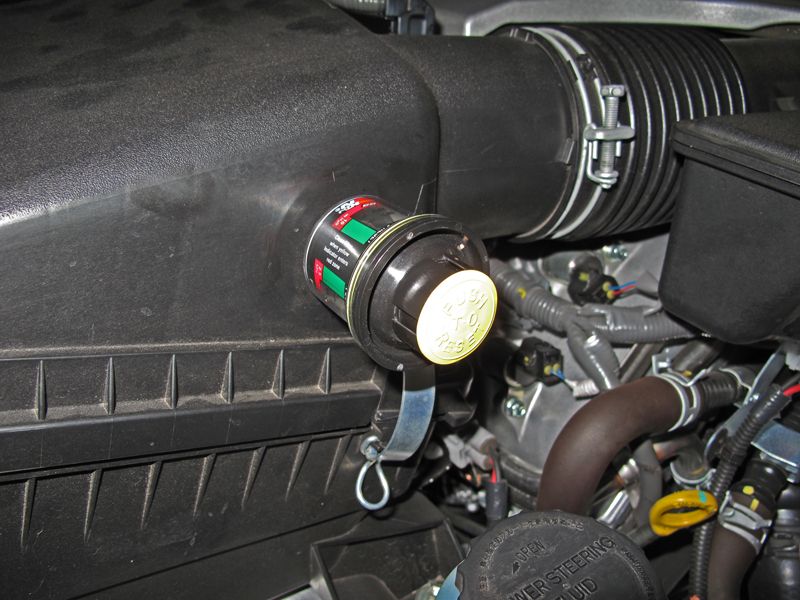Originally Posted By: Ken2
The filter may deteriorate with heat and age and come apart. Bad problem.
Define the limits. If we are talking 20 years maybe. If we are talking 3-6 years with a good quality filter, I'll disagree.
Originally Posted By: Ken2
Dirt particles do work their way through filters over a long time. I've changed many that are dirty on the downstream side.
Again, you are overgeneralizing. Define the limits. What you describe does happen with some filters but commonly only when excessive restriction is allowed to continue over a long period. By "some" filters I am speaking about poor quality filters. Also, if the filter is defective or damaged you gan get pass-thru. Pinholes are not always readily visible so unless you really do a detailed inspection of a filter in which you see dirt on the clean side or in the intake tract, you really don't know what happened. I have observed air filters being tested in a lab and even if the DP is allowed to rise well past the rated maximum, good quality filters had little if any migration thru the filter until the structural limits of the element was reached.
Originally Posted By: Ken2
Restriction gauges work best on a diesel due to their lack of a throttle, and even then the engine needs to be running hard with the turbocharger pulling a lot of air in. On a gasoline engine you'd need to watch the gauge during a full throttle, high rpm run.
Perhaps your comment is just inarticulately worded but, if not, it sounds like you have a basic misunderstanding of how restriction gauges work. Restriction gauge are nothing more than recording vacuum gauges. They record the maximum amount of restriction encountered. The instructions for the gauges I know about have the operator to do a WOT run and then observe the recorded maximum restriction with a new/clean filter. From there you periodically observe or reset the gauge and do another WOT observing the increase. Either the engine manufacturer will have a restriction limit or you can use some of the generic limits available. They work equally well on diesels or gasoline engines. Here is Donaldon's info sheet on them Info Sheet and here is Baldwin's Info 2 which has a great filtration "do and don't" on page three. Also look at the Filter Minder site for good info Filter Minder. The only engines that can be problematic, so I am told buy one engineering source, are carbureted gasoline engines. More and more I question that but won't go into it now.
The filter may deteriorate with heat and age and come apart. Bad problem.
Define the limits. If we are talking 20 years maybe. If we are talking 3-6 years with a good quality filter, I'll disagree.
Originally Posted By: Ken2
Dirt particles do work their way through filters over a long time. I've changed many that are dirty on the downstream side.
Again, you are overgeneralizing. Define the limits. What you describe does happen with some filters but commonly only when excessive restriction is allowed to continue over a long period. By "some" filters I am speaking about poor quality filters. Also, if the filter is defective or damaged you gan get pass-thru. Pinholes are not always readily visible so unless you really do a detailed inspection of a filter in which you see dirt on the clean side or in the intake tract, you really don't know what happened. I have observed air filters being tested in a lab and even if the DP is allowed to rise well past the rated maximum, good quality filters had little if any migration thru the filter until the structural limits of the element was reached.
Originally Posted By: Ken2
Restriction gauges work best on a diesel due to their lack of a throttle, and even then the engine needs to be running hard with the turbocharger pulling a lot of air in. On a gasoline engine you'd need to watch the gauge during a full throttle, high rpm run.
Perhaps your comment is just inarticulately worded but, if not, it sounds like you have a basic misunderstanding of how restriction gauges work. Restriction gauge are nothing more than recording vacuum gauges. They record the maximum amount of restriction encountered. The instructions for the gauges I know about have the operator to do a WOT run and then observe the recorded maximum restriction with a new/clean filter. From there you periodically observe or reset the gauge and do another WOT observing the increase. Either the engine manufacturer will have a restriction limit or you can use some of the generic limits available. They work equally well on diesels or gasoline engines. Here is Donaldon's info sheet on them Info Sheet and here is Baldwin's Info 2 which has a great filtration "do and don't" on page three. Also look at the Filter Minder site for good info Filter Minder. The only engines that can be problematic, so I am told buy one engineering source, are carbureted gasoline engines. More and more I question that but won't go into it now.




